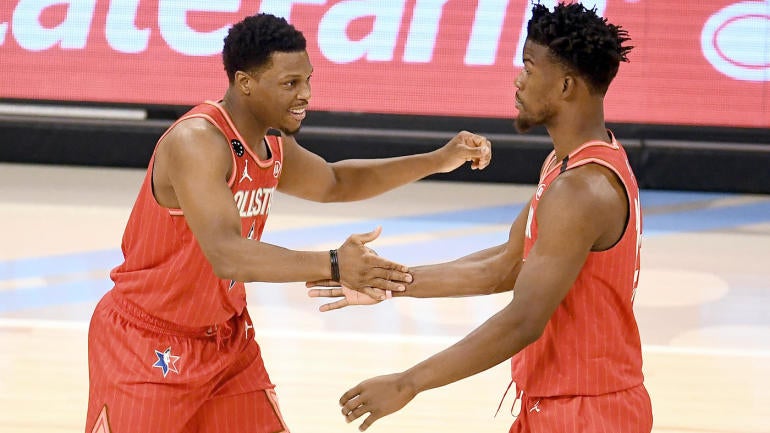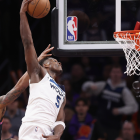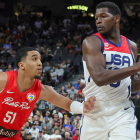
The NBA has opened an investigation into two possible instances of tampering this offseason: Kyle Lowry's sign-and-trade to the Miami and Lonzo Ball's sign-and-trade to the Chicago Bulls, according to ESPN's Adrian Wojnarowski and Ramona Shelburne. The two moves, to some extent, had been rumored for weeks prior to their completion. On Sunday, Aug. 1, Wojnarowski reported that the Heat were considered strong favorites to land Lowry for a package built around Goran Dragic and Precious Achiuwa. Those were ultimately the players sent to Toronto for Lowry. At exactly 6 p.m., ET on Aug. 2, the literal minute free agency began, The Athletic's Shams Charania reported that Ball would land in Chicago on a four-year, $85 million deal through a sign-and-trade.
The NBA enforces tampering rules selectively, but tends to be stricter when it comes to sign-and-trade arrangements. Last offseason, it was widely reported that Bogdan Bogdanovic would be joining the Milwaukee Bucks through a sign-and-trade before free agency even began. Tampering allegations were made almost immediately, the deal fell apart, and the Bucks were docked a second-round pick after an investigation found that they did, indeed, tamper.
Tampering is believed to be a fairly common practice in the NBA overall. There's a common sense element to that. The overwhelming majority of major free agent deals are reported in the first several hours in which players and teams can legally negotiate. It seems far likelier that teams and players had preexisting contact than it is that they could, say, negotiate an $85 million deal in the first minute of free agency.
But the NBA does very little to actually prevent teams from tampering. A second-round pick or a $50,000 fine is a small price to pay for the upside of a competitive advantage in free agency. The league simply couldn't disallow the moves themselves because every subsequent move made this offseason was made based on the assumption that Lowry would head to Miami and that Ball would join the Bulls. Teams no longer have the financial flexibility to offer those players deals of the magnitude that they ultimately signed, and other players are involved in those transactions as well.
At this stage, the league has not yet found an effective deterrent for tampering. If the teams involved in these transactions are found to have tampered, perhaps harsher penalties will follow considering the Bogdanovic situation last offseason. But until the league takes a stand against tampering, there is no reason to believe teams will stop doing it.






















